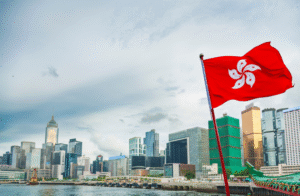Food is a vital part of any culture, but do you know exactly what it takes to establish a food and beverage business in Singapore?
Singapore is regarded as a foodie’s paradise by both locals and visitors. According to a recent analysis by Food Industry Asia (FIA) in 2020, Singapore’s food and beverage industry provides an estimated S$14.4 billion (US$10.6 billion) to GDP and employs approximately 300,000 people.
Perhaps you’ve hidden away a recipe or even a whole menu of delights in the hopes of one day launching your restaurant or cafe. But the thought of starting a business from the ground up might be daunting, so we’ve put up a step-by-step guide on how to start a food and beverage business in Singapore.
Step By Step Guide To Setting Up F&B Business In Singapore
Some of the stages to successfully starting your own F&B business are mentioned below:
Make A Foolproof Business Plan
Financial projections, budgeting, marketing strategy, pricing plan, operations, suppliers list, recruiting procedures, service standards, and so on should all be included in your business plan.
Additionally, you must first select and narrow down your target market by doing competitor research. You must identify the top five competitors, research and analyse their menu and business plan and identify the areas where they thrive the most.
This can help you up the most competitive mission and vision for your F&B company. Make a list of areas you believe your competitors could improve once you have studied them. Adopting these pointers can be of great benefit to you. In a nutshell, come up with ways you can outperform your competitors and set yourself out from the pack.
It’s also a good idea to consider your departure strategy and contingency plan for as many different scenarios as possible. Things go wrong all the time, and you must be prepared to deal with them. First-time owners tend to overspend, and you don’t want to run out of money halfway through the project.
Plan and Secure the Required Capital
A precise budget and financial plan created in advance is a vital step in creating a sound business foundation.
With regards to the amount of capital you have, determine the cost of:
- Renovations (Takeover vs Bare): Bare units will significantly raise your expenditures, whereas takeover units may already include the essentials, such as exhaust, flooring, kitchen, piping, ceilings, woodwork, and electrical.
- Equipment: The cost of kitchen equipment, not the cost of individual pieces of equipment, but the total cost of all the pieces of equipment, may astound you.
- Rental: How much can you afford to pay in rent each month? Set aside at least 25% of the total sum indicated in the rental agreement. For example, if your lease is for 24 months, set aside six months; if your lease is for 36 months, set away ten months. This is what you’d call your “rainy day” reserve.
- The cost of manpower is calculated based on the number of employees/workers for 3-6 months.
If you’re having problems sticking to your financial budget, I recommend cutting back. Delay your launch and form a partnership with investors. Starting a food and beverage business is a lengthy process that can quickly deplete your cash.
Do not underestimate the cost of establishing a food and beverage business in Singapore. The average startup cost of an F&B business ranges from $100,000 to $300,000. Of course, this depends on the location and size of your establishment. The high cost is largely due to the high rental cost, employee compensation, upgrades, and overall style of living.
Decide On The Name Of The Business
When you’re ready to start the Singapore F&B company formation procedure, the first step is to decide on the preferred name for the company then register your company name with the Accounting and Corporate Regulatory Authority (ACRA). Before proceeding with the company incorporation process, you must first complete this step. ACRA is in charge of overseeing all Singapore-based firms.
ACRA registration is quick and easy. Log in to BizFile+ with your SingPass ID and fill in the required information. This is the web platform that ACRA is in charge of and helps entrepreneurs who want to establish businesses in Singapore to secure their business names.
Appoint Your Company Officers
The next step is to hire a company staff to assist your food and beverage operation in keeping track of legal paperwork and completing annual filings. Every firm needs a company staff, and there are two ways to get them: hire in-house or outsource the food and beverage company staff. You’ll never have to worry about whether your firm is complying with Singapore’s local rules if you outsource the function to competent corporate company officers.
Identify The Location For Your Business
The next step is to identify the ideal location for your business. You can choose a physical or an e-Store, whichever structure suits your target market. The following are some of the most prevalent methods for finding a physical store:
- Newspaper advertisements
- Propertyguru.com.sg (Real estate agents also make a lot of posts)
- Sending mails to multiple real estate agents.
- Making cold calls to landlords
Having many real estate agents seek locations for you is the simplest and fastest method. The disadvantage is that certain sites, such as large shopping malls, will require you to pay a one-month rent commission to the real estate agency. If the deal is completed, most smaller, private landlords will instead pay the commission to the real estate agency.
When working with real estate agents, make sure you have a clear understanding of your space requirements, electrical requirements (M&E), desirable areas in Singapore, and the type of cuisine you provide so that agents know what to focus on and what to present to the landlord.
The following factors must be considered when selecting a location:
- For a physical location, you will need to sign a Tenancy Agreement with the landlord
- You may also need to secure storage & warehouse locations for your raw material depending on the scale of your business.
- An e-Store if you plan to sell food and beverages online. You register on food delivery apps like FoodPanda, Grab or Deliveroo. You can also make use of eCommerce sites like Lazada and Shopee to sell your products.
Incorporate Your Business
The first step is to register your company with the ACRA. Go over to www.bizfile.gov.sg.
SingPass is also required for incorporation for Singaporeans. Foreigners must first apply for an Entrepass with the Ministry of Manpower and then apply for a SingPass after receiving the Entrepass.
Complete the following items on your preliminary list for incorporating your business: SSIC description restaurants 56111, food caterers 56201, and so on.
Because the F&B sector in Singapore is so competitive, food catering as a side business is highly recommended. Depending on your business configuration, choose between a sole proprietorship, a private limited company, or a limited liability company. Private Limited is the company that is most recommended.
Complete the processes by paying $15 for name registration and S$300 for ACRA registration.
Hire The Right Human Resource
Posting job openings on job sites is the simplest way to hire kitchen staff.
Alternatively, you might look for F&B industry-related Facebook groups in Singapore. Not only will you discover company owners in these groups, but also excellent local chefs.
You can refer to the Ministry of Manpower’s foreign worker quota if you want to hire foreign workers to supplement your pool of local personnel. This lets you know how many people you can hire with Work Permits and S Passes.
MOM considers the following F&B outlets as part of the service industry. Therefore, if you fall under the below-stated category, your quota to employ foreigners will vary accordingly.
- Hotels.
- Restaurants, coffee shops, food courts and other approved food establishments (excluding food stalls or hawker stalls).
You can also hire migrant workers only certain source countries:
- Malaysia
- People’s Republic of China (PRC)
- Hong Kong (HKSAR passport)
- Macau
- South Korea
- Taiwan
Non-Malaysian Work Permit holders working in the hotel and F&B industries must obtain level 4 of the Workplace Literacy and Numeracy (WPLN) listening and speaking assessments to qualify as higher-skilled workers.
Obtain The Necessary Licences
Depending on your food and beverage concept: whether it is a restaurant, a caterer, a café, or a bar, you’ll need to apply for certain permits. Maybe the establishment you’ve chosen has some restrictions or requirements for operating a food and beverage shop.
Below are some of the common licences you would require to start operating as an F&B outlet:
License For A Food Store
Compulsory for all food establishments in Singapore. These include: Restaurants, Cake Shops, Eating Houses, Coffee Shops, Food Courts, Snack and Drink Counters, Market Produce Shops, and Private Markets are all examples of food establishments.
- Only apply when you’ve signed the tenancy agreement and have completed your interior layout plan.
- The hiring of foreign workers is permitted under the terms of the Food Shop License. Food stalls are exempt from this rule.
When applying for a Food Shop License, you will need to bring the following documents:
- A photocopy of one of the following documents (if applicable):
- The back and front of the identity card (if you are applying as an individual),
- Business profile of a company, or
- Certificate of Registration issued by the Registrar of Societies
- A tenancy document to show that the applicant and the landlord have reached an agreement on a tenancy.
- A scaled metric blueprint of the premises depicting the layout of the preparation area, kitchen, restrooms, refreshment area, stores, and other areas.
- Approval(s) from the Housing Development Board (HDB), the Building and Construction Authority (BCA), and/or the Urban Redevelopment Authority (URA) [where appropriate].
- A list of the food handlers you hired
- X-ray certificates for food handlers over the age of 45
- Certificates of typhoid immunization are required for all food handlers.
- Using the prescribed form obtained from the relevant Regional Office, compile a complete list of Food Hygiene Officers employed
Food Hygiene Course At WSQ
All food handlers have to be certified, and these have to be renewed through subsequent refresher courses after every 5 years.
Liquor Permit
For F&B outlets that sell alcoholic beverages. There are various classes to choose from.
Any sales of intoxicating liquors in Singapore will require a liquor license issued by the Liquors Licensing Board (LLB), according to the Customs Liquors Licensing Regulations.
There are two types of licenses issued by the LLB:
- For the retail sale of intoxicating beverages for on-site consumption
- Intoxicating beverages for off-premises consumption (retail or wholesale).
Two permits will be necessary to operate both retail and wholesale sales. A Retail Liquor Shop License and a Wholesale Liquor Shop License, for example, maybe awarded to the same location.
Employer Registration For The Central Provident Fund (CPF)
CPF is a government-mandated social security savings plan that requires all Singapore companies to pay a percentage of their employees’ monthly income, ranging from 7.5% for those over 65 to 17% for those under 55.
Registration For The Goods And Services Tax (GST)
The Singapore government puts a tax on practically all goods and services consumed. GST stands for Goods and Services Tax (Goods and Services Tax). When people spend money on products or services, including imports, they must pay GST. A company with a yearly turnover of up to S$1 million must register for GST.
Storage Permit For Petroleum And Flammable Materials
You’ll need a Petroleum and Flammable Materials (P&FM) storage license from the Singapore Civil Defense Force to install and store liquefied petroleum gas (LPG) and other related items.
This license is required for any food stall that plans to store more than 200kg of LPG at the location; if your food stall stores are less than that, you do not need this license.
Halal Certification By MUIS
For F&B outlets that want to be certified halal.
Import Permit
Necessary if you use imported ingredients in your food production.
Licence For Public Entertainment
If you provide any form of entertainment, including TVs.
You can go to the government website, GoBusiness to learn more about the types of licenses you’ll need for your food business in Singapore.
Maintain Your Company Books And Registers
Starting a business is difficult enough, but it’s even more difficult if you have no prior financial expertise. To prevent making costly blunders in updating and maintaining your food and beverage company financial records, it’s critical to obtain financial counsel from a professional.
Accountants and bookkeepers can assist you in staying on top of your finances and easing the burden of tax season. Don’t worry if you don’t have the funds to engage an accountant. Digitally outsourcing accounting and bookkeeping has never been easier. It’s usually more efficient and less expensive than hiring in-house.
Singapore Government Incentive For Food & Beverage Companies
Singapore’s food and beverage industry benefit from a plethora of government-sponsored incentives. This is to encourage the industry to expand to fulfil market demands. The following are some of the available incentives:
- SPRING Singapore has established F&B sector innovation incentives as part of the Capability Development Programme (CDP) to assist in the growth of innovative ventures.
- Service incentives in the F&B sector are made feasible by the Go the Extra Mile for Services (GEMS) government initiative, which aims to improve service levels.
- Food safety incentives: this program covers up to 50% of the cost of ensuring that food safety standards are satisfied per National Environment Agency (NEA) regulations.
- Restaurant operators can take advantage of Local Enterprises and Association Development incentives in the food and beverage sector (LEAD)
These incentives have been critical in helping Singapore’s food and beverage sector thrive while also ensuring that food safety regulations are met in restaurants.
Conclusion
While these steps seem simple, it involves a lot of work and dealing with several government agencies. Any glitch can lead to some serious delays in bringing your dream project into motion.
So why not let HeySara be your trusted company compliance service provider to help you glide through the process. We will be there with you from the very first step till the last. You can also rely on us to manage the statutory requirements after you start your business.
It takes a lot of time, effort, and perseverance to start your own F&B business. You will also need to prepare for the maintenance and growth of your firm once it has been launched.
If you’re considering quitting a “stable” career to establish your own F&B business in Singapore, make sure you’re aware of the hazards and have enough savings to weather the storm before making any hasty decisions.




